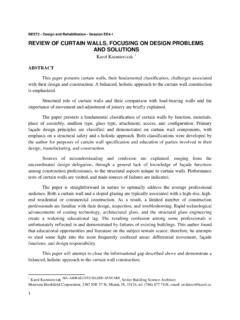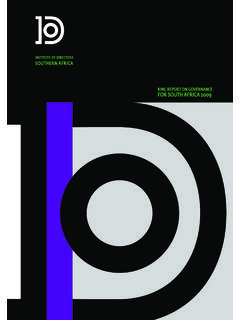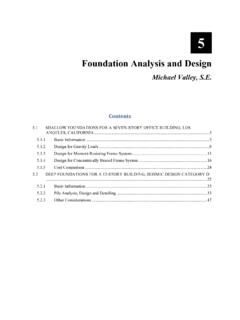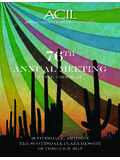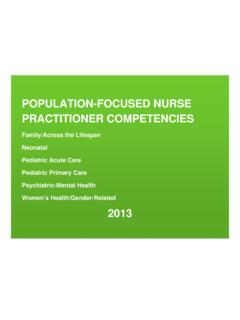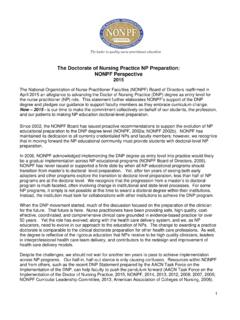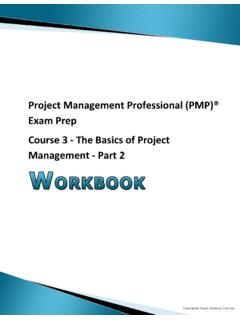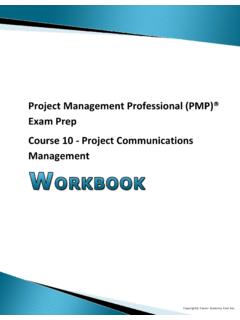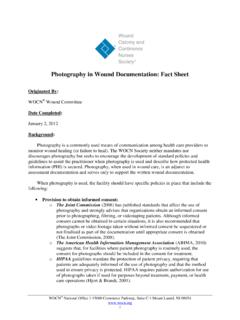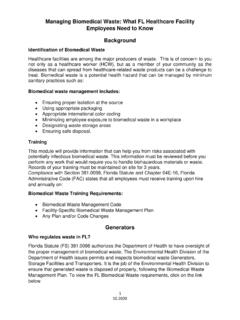Transcription of Frequently Asked Questions (FAQs) Regarding the BinaxNOW ...
1 Frequently Asked Questions (FAQs) Regarding the BinaxNOWTM COVID-19 Ag Card Test and the COVID-19 Reporting Portal Usage and Guidance Q: Where can I find the Emergency Use Authorization (EUA) for the BinaxNOWTM COVID-19 Ag Card Test? A: Please visit Q: Can Emergency Medical Technicians administer this test? A: Yes, but they need to be operating under a Clinical Laboratory Improvement Amendments (CLIA) Certificate of Waiver (CoW) with mobile site exemption. The CLIA program must be notified prior to beginning operation as a mobile site. Q: Who can administer the test ( , nurses vs. non-clinical staff)? A: Non-clinical staff may administer waived testing under a CLIA CoW. However, they must be trained on the proper use of the test and it is recommended that they document the training to ensure competency.
2 Q: Do we need a Material Safety Data Sheet for the card or the reagent? A: No, the card and reagent are not considered a potential hazard. Q: What are the storage requirements for the test kit and the reagent? A: The test kit and the reagent should be stored between 2 30 C (35 86 F). All test components should be at room temperature before use. Q: What do you do with the box if the control is not positive? A: If the correct control results are not obtained, do not perform patient tests or report patient test results. Contact Technical Support at 1-800-257-9525 during normal business hours before testing patient specimens. Q: Can you share the information on the procedure and the fact sheets? A: This will be available in each box of test kits. Q: There is only one control; how long are the cards good for?
3 A: Please adhere to the expiration date on the kit box, reagent and cards. Q: How many control tests do we have to do? A: One positive control from each box of 40. Q: What kind of chemicals are put on the swab before collecting the sample? A: The swabs provided are sterile swabs. There are no chemicals on the swabs. Q: How many tests come in a box? A: 40. Q: How many tests can be completed with one bottle of reagent? A: Each kit contains 40 tests and one bottle of reagent, which will complete all the tests in the kit. Q: For the controls, should it be six drops or eight drops? A: It is eight drops for the control and six drops for collected specimens. Please follow the directions on the procedure card supplied in the box. Q: What does an inconclusive result look like? In the kit, please review a product information brochure which explains invalid results with pictures of how they will look.
4 Q: If the test is left sitting for longer than 15 minutes, after how much time is the test still valid? For example, if I stepped away to take care of someone else and waited 30 minutes to view the result, is that still valid? A: The results should not be read sooner than 15 minutes and no longer than 30 minutes. After 30 minutes, the test should be discarded and repeated. Q: When does the time start for the test? A: Start timing when the card is closed and securely sealed. Q: Do we need to wear personal protective equipment for the control? A: Yes, solutions used to make the positive control swab are non-infectious. However, patient samples, controls and test cards should be handled as though they transmit the disease. Q: Is it acceptable to place the cards into a sharps container? Placing the cards in a red bag would require pick-up disposal every 30 days.
5 A: All components of this kit should be discarded as biomedical waste according to federal, state and local regulatory requirements. Used cards may be disposed into a red bag or sharps container. chapter 64E-16 of the Florida Administrative Code requires a red bag or sharps container to be disposed within 30 days of placing the first non-sharps biomedical waste item into the bag or sharps container. Q: Is a biomedical waste permit required? A: Yes. A person or facility producing the biomedical waste must hold a current biomedical waste generator permit or exemption. A person or facility not currently permitted or exempted may apply for a permit by submitting an Application for biomedical waste Generator Permit/Exemption (form DH 4089). Q: My facility does not have a biomedical waste generator permit.
6 Can I apply for the biomedical waste exemption? A: An exemption may only be granted to a currently permitted biomedical waste generator providing documentation of the weight of biomedical waste generated during each 30-day period for the previous 12 consecutive months. Q: What is the sensitivity/specificity of the test? A: Within seven days of symptom onset, the sensitivity is percent and the specificity is percent. Q: Can a nasal spray such as Afrin cause an incorrect test result? A: Please check with the product information guide that is supplied in the box with a list of medications deemed by the company not to interfere with the results. Q: Can Bactroban give a false-negative or false-positive result? A: A false-negative result. Q: If the test result is negative, would we still need to recommend a polymerase chain reaction (PCR) test to be conducted?
7 A: When the pre-test probability of infection is low ( , asymptomatic student, no known exposure, not a part of an outbreak, low community COVID-19 activity, or county positivity rate is less than five percent), guidance is as follows: If an antigen test result is positive, perform confirmatory PCR test within 48 hours. If the PCR test result is negative, treat as a negative result. When the probability of infection is high ( , symptomatic student, known exposure, part of an outbreak, high community COVID-19 activity, or county positivity rate is greater than five percent), guidance is as follows: If an antigen test result is positive, a confirmatory PCR test is unnecessary. If a PCR test is also performed and the result is negative, facilities should base their infection prevention and control actions on the positive antigen test result.
8 If antigen test result is negative, perform confirmatory PCR test within 48 hours. Q: Are these test kits only for symptomatic individuals? Can we test asymptomatic individuals? A: The Food and Drug Administration has authorized under the EUA testing of asymptomatic individuals; however, please refer to guidance from the Centers for Disease Control and Prevention Regarding point-of-care testing strategies and considerations when testing: Q: Do we test only symptomatic persons or also exclusions? A: Per the EUA, the test is meant to be used on symptomatic individuals, and specifically on those within the first seven days of their symptoms. Q: Can a negative test signal a return from isolation if the person is symptomatic with no known contact to an individual with COVID-19? Would this rapid test qualify as negative even though there is a chance of a false negative?
9 A: As there is a chance for a false-negative test result, if someone is symptomatic and tests negative by rapid antigen, they should still be evaluated by a provider and ideally receive a PCR test. They should not be allowed to return until they have been evaluated by a provider and given an alternate diagnosis or received a negative confirmatory test. Clinical Laboratory Improvement Amendments Q: What is CLIA? A: CLIA stands for Clinical Laboratory Improvement Amendments of 1988 and are the federal regulatory standards for all laboratories performing clinical laboratory testing on human specimens for diagnostic or treatment purposes. Q: Does the school need a CLIA waiver? A: Yes, unless they are covered under another entity s CLIA certificate or CLIA Certificate of Waiver (CoW). They are permitted to use another CLIA CoW as an exception with certain restrictions.
10 Please note that accountability is on the CLIA certificate holder. Q: Do schools have a CLIA waiver or will county health departments (CHD) be extending CLIA waivers to schools to administer the tests? If the Florida Department of Health (FDOH) extends their CLIA waiver, do FDOH staff need to be physically present when administering tests? A: Schools may or may not have a CLIA certificate or CoW. FDOH can extend their CLIA CoW and FDOH staff do not need to be on site for the testing. However, school staff must be appropriately trained on the administration of these tests and may not deviate from the manufacturer s instructions on use. Documentation of training is recommended. Q: The CLIA waiver certificate that was sent to the schools states it is FDOH. Does each school site need a separate CLIA waiver or are they using the waiver that was sent out?
